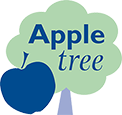Is being the fastest the best?
It is commonplace to hear that an event had received a large audience because it has been publicised on Twitter. This does, of course, depend on how many followers the Twitterer had, what time of day the tweet was sent, how many times, and what it said. And the viral element: how many times it was retweeted, which, in turn, depends on the Twitter accounts it was retweeted by, and who read it…
Social networking is notoriously fast. To those who aren’t old fogies like me, it seems incomprehensible how slow we were 20 years ago, without email, mobile phones or even the internet. Publicising an event would have taken planning, forethought and a considerable amount of legwork: getting flyers printed, distributed and posted up on show; invites sent out to likely friends, relying on the Word of Mouth (a factor now replaced by Word of Mouse); booking done via telephone, in person at a box office or even by post (heavens, not snail mail!).
Of course there are (slightly) slower versions today: texting and status updates on social media do require a bit of a time delay before you get an answer, which should allow you plenty of time to think of something suitable say (if possible). Go a step slower and blogging encourages comments on its posts which, depending on whether they are moderated or not, can become flowing conversations where necessary.
Email newsletters and similar campaigns are maybe the slowest, but booking online via clicking on a link that will direct you immediately to a Paypal or similar shopping cart certainly cuts down the lengthy procedure of finding a box office, and stimulates a more immediate response that eliminates the chance of being forgotten, overlooked or displaced by another event.
But then these slower options do allow more room for information about the event, a phenomenon that is certainly more difficult if restricted to 140 characters (SMS as well as Twitter) or the quick-fire responses on status updates on Facebook, (certainly, as in the case of my daughter, with several open all at once!). Posting up details of the event on a blog, forum, Facebook fanpage or as a discussion on a LinkedIn group will allow a bit more perpetuity than the ‘here, now gone’ scenario of Twitter, so subject to a continuous timeline forever superseding what has gone before.





